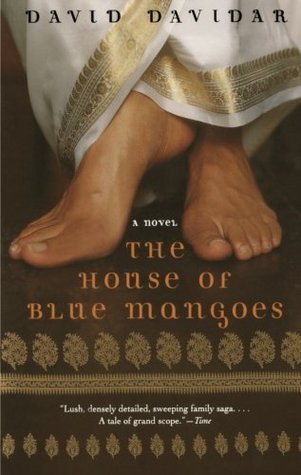
The House of Blue Mangoes
Book Description
In a quiet town nestled amidst the lush landscapes of South India, a family weaves a tapestry of dreams, secrets, and heartache. As the blue mangoes ripen under the blazing sun, the bonds of love are tested, and loyalties fractured by betrayal. Generational conflicts simmer, while forbidden romances bloom, setting the stage for a gripping drama that transcends mere memories. Every twist pulls deeper into the lives intertwined, where every choice echoes with consequences. Can the threads of tradition hold fast against the storms of change, or will the house crumble to dust? What price must one pay for a chance at freedom?
Quick Book Summary
"The House of Blue Mangoes" by David Davidar is a sweeping saga that charts the fortunes and tribulations of the Dorai family over three generations in a quiet town on the southern coast of India. Set against the tumultuous backdrop of colonial rule, the narrative follows the Dorais as they navigate personal tragedies, changing political landscapes, and the clash between tradition and modernity. As blue mangoes ripen in the family’s orchard, forbidden love, betrayal, and generational rifts threaten to unravel the family’s unity. Through moments of tenderness and conflict, the novel explores themes of identity, legacy, and resilience, deftly illustrating how the intertwined fates of a single family echo the broader struggles of a nation on the cusp of transformation.
Summary of Key Ideas
Table of Contents
Tradition Versus Change
The Dorai family’s story begins in the late 19th century, with patriarch Solomon Dorai as the respected headman of Chevathar, a village proud of its heritage and customs. Solomon’s integrity and dedication to upholding his family’s honor set the tone for subsequent generations. The family estate, with its famed orchard of rare blue mangoes, becomes a symbol of continuity and the deep connection to the land. However, as new ideas and social forces seep into the village, the family faces challenges that threaten to upend the world they have always known.
Family and Generational Conflict
As the novel progresses, tensions increase between tradition and new possibilities. Davidar vividly portrays generational conflict, with Solomon’s sons and grandchildren often at odds over issues like education, marriage, and political engagement. Some seek to preserve the old ways, while others push for progress, assembling a rich mosaic of voices within the Dorai household. These conflicts are not merely personal but mirror the larger societal transformations occurring in colonial and postcolonial India, where the old order gives way to the winds of change.
Forbidden Love and Betrayal
Love weaves throughout the narrative in complex and often challenging ways. Forbidden romances—across caste lines, religious boundaries, or simply defying parental expectations—bring both passion and heartbreak. Characters wrestle with societal constraints and personal desires, sometimes choosing loyalty to family over their own happiness. Betrayals, whether of heart, trust, or tradition, create ruptures that reverberate across generations, shaping the emotional landscape of the Dorai legacy.
The Impact of Colonialism
The presence of colonial rule is omnipresent, influencing every aspect of life in Chevathar. The Dorais interact with British officials, adapt to new laws, and face economic and social pressures brought by imperial policies. The struggle for independence and the impact of political turmoil play out in the choices the family must make, from engaging in peaceful resistance to embracing radicalism. Colonialism’s legacy both fractures and forges identities, compelling the family to reconsider their place in a rapidly shifting world.
Resilience and Identity
Amidst upheaval, "The House of Blue Mangoes" ultimately celebrates the resilience of the human spirit and the enduring power of identity. The Dorais confront loss, reinvent themselves, and strive to reconcile the weight of history with the hope of the future. The family’s journey—from unity to fracture and, ultimately, to a tentative reconciliation—mirrors the broader narrative of a nation in flux. Through evocative storytelling and masterful characterizations, Davidar crafts a memorable portrait of love, loss, and the unbreakable ties of home.
Download This Summary
Get a free PDF of this summary instantly — no email required.





